No Results Found
The page you requested could not be found. Try refining your search, or use the navigation above to locate the post.
By Mirika Jambudi (III)
Due to Pingry’s transition to remote learning last week, students from all four grades were able to showcase their talent in Pingry’s first-ever Remote Talent Show! Over spring break, Student Government class presidents were hard at work redesigning the format of the competition using a March-Madness-style bracket. “We had to reorganize the entire bracket, but it ultimately allowed for more students to be able to display their talents,” said J.P. Salvatore (III), freshman class president. He described his excitement to see the talents presented and his hope that it would be a great community-bonding experience.
Students submitted a variety of talents, ranging from self-accompanied songs to skillful soccer ball handling. Out of the 11 submissions, the Upper School voted on their four favorite acts. The top 4 students advanced to the final round and were able to submit new clips of their talents. The four finalists were Sophia Cavaliere (V), Camille Collins (III), Natalie DeVito (IV), and Nicolás Sendón (III). All the finalists brought their best to the final round, and it was up to students to decide who would ultimately become the first-ever champion of the Remote Talent Show. “It was fun seeing the final four talents and voting … I was impressed by the amount of talent each grade has to offer,” said Ram Doraswamy (IV).
Ultimately, on Monday, Nicolás Sendón (III) was announced winner and Natalie DeVito (IV) earned runner-up. Nicolás had played a song on the bagpipes, while Natalie sang a song and self-accompanied on guitar. “I was excited to hear that I had won … everyone brought a lot of talent to the show, and I’m grateful for the community’s support,” Nicolás remarked. Natalie agreed, describing her gratitude for those who reached out to her. “Connection and solidarity is super important right now, and sharing art has the potential to bring people together, now more than ever,” she said. Nicolás was awarded a $20 Amazon gift card for winning first place. Congratulations to Nicolás and Natalie, and to all others who participated!
By Brian Li (IV)
With the closure of schools in the wake of the COVID-19 outbreak, students are unable to receive the same level of education as before. For Pingry students the changes have been especially relevant in the context of fast-paced Advanced Placement (AP) courses. AP courses are considered rigorous and demanding, and they usually finish with a three-hour year-end exam covering all of the topics studied during the course. However, as a result of school closures, many AP courses will not be able to cover all of the necessary curriculum, leaving students at a disadvantage for the exams.
To combat this issue, The College Board, the parent organization of AP courses, has altered the exams in wake of the COVID-19 pandemic. In place of the standard three-hour in-school exam, The College Board has announced that exams will be 45 minutes long, administered online, and only include “topics and skills most AP students and teachers have already covered in class by early March.” They will be open-book, with AP World Language exams consisting only of speaking questions and most others consisting only of free-response questions. The exams will be administered from May 11 through May 22, the third and fourth weeks of the month, and makeup exams will be offered in early June.
In these extraordinary circumstances, such significant changes to the AP exams may seem very sudden. Students with questions can contact their teachers or counselors, or visit the AP College Board COVID-19 website linked here.
By Monica Chan (V)
Schools across the country are currently navigating uncharted territory in the realm of remote learning, which inevitably brings up the question of how to adjust grading policies. Some schools have decided to adopt pass/fail evaluation, some will omit third quarter grades from the final grade, and others have chosen not to adjust grading at all. Seeing that Pingry is still in the process of considering how grades will ultimately be allocated, I decided to delve into a few possibilities, and illustrate some of the possible benefits and drawbacks of each. Each of these possibilities are for second semester grades only, since we already have one full, undisrupted semester complete. I have also enclosed a summary of the recent Student Government proposal that was sent to the administration by the senior class student representatives.
Pass/fail seems to be a popular choice for many universities, including Harvard and UC Berkeley. The rationale lies in the belief that many students may feel like their current grades do not accurately reflect their potential, and the disruption of remote instruction might hinder their ability to demonstrate growth or reverse the effects of an outlier grade. Some schools have turned to “optional” pass/fail, meaning that students can elect to change certain courses to pass/fail grades. However, Harvard Medical School has stated that they will only accept pass/fail grades if the applicant’s school mandated pass/fail. This type of policy puts students in a tough spot when they have to show a poor grade that could have improved under normal circumstances.
Another idea is to remove the +/- designation. Basically, this option means that there would be no +/- designation on your grade, so if you scored between a 90-100 it would be an A, 80-89 is a B. While I haven’t seen any schools implement this yet, it would provide a ballpark estimate of your grade while still leaving some leeway for performance increase.
During my search for different grading policies, I had a few people outside of Pingry reach out to me with their schools’ grade changes. One student at another school said that their school is grading based on participation, meaning that traditional assessments have been omitted altogether. Instead, a number of research projects or creative projects have been implemented instead. This may be difficult for traditional science and math classes, but perhaps one alternative may be assigning concepts to different groups of students to teach to the rest of the class and then getting graded on the quality of those lessons.
On Wednesday, March 25, Pingry’s Student Government sent a proposal to Dean Chatterji and Dr. Cottingham outlining their suggestions on academic evaluation in the era of remote learning. The proposal included making AP exams optional, which has already been implemented, cancelling final exams, and making spring semester courses pass/fail. For example, if you are in a one semester spring computer science course (Programming Languages and Design, Introduction to Programming) your grade would automatically be pass/fail.
The proposal also suggested that second semester grades for full-year courses (AP courses, core curriculum classes) cannot bring down your final year grade. This means that if you earned an A in the first semester, and currently hold a B+ in your second semester grade for a certain class, the B+ can not bring down your final average. The administration will revisit the grade adjustment discussion in mid-April.
Whatever the administration decides to do with the grading, it is apparent to everyone that this year’s academics won’t be traditional. Many colleges such as Harvard and UChicago have said that they will understand grade changes for next year’s high school senior class, and that will have no impact on their evaluation of you as a candidate. Do not fret!
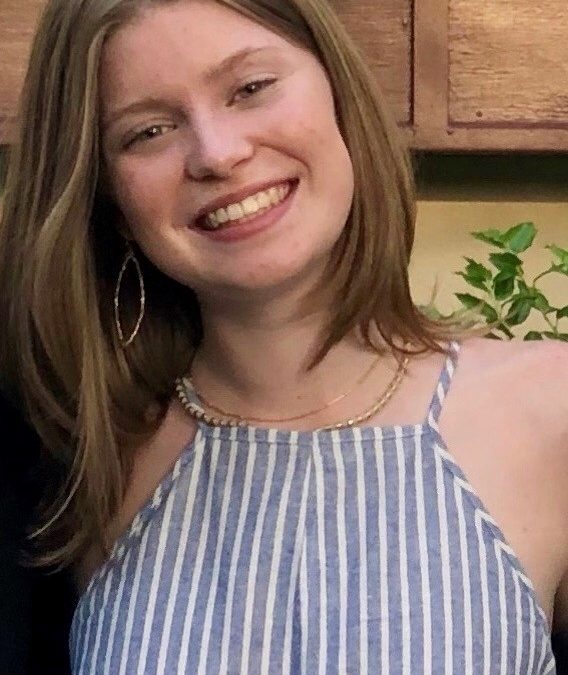
Meghan Durkin ‘21 is the Co-Editor in Chief for the Pingry Record. She has been writing since freshman year and began editing her sophomore year. She enjoys writing school news pieces, as she gets to explore and further understand Pingry traditions. In her free time, she loves to ski, sing, and hang out with friends.
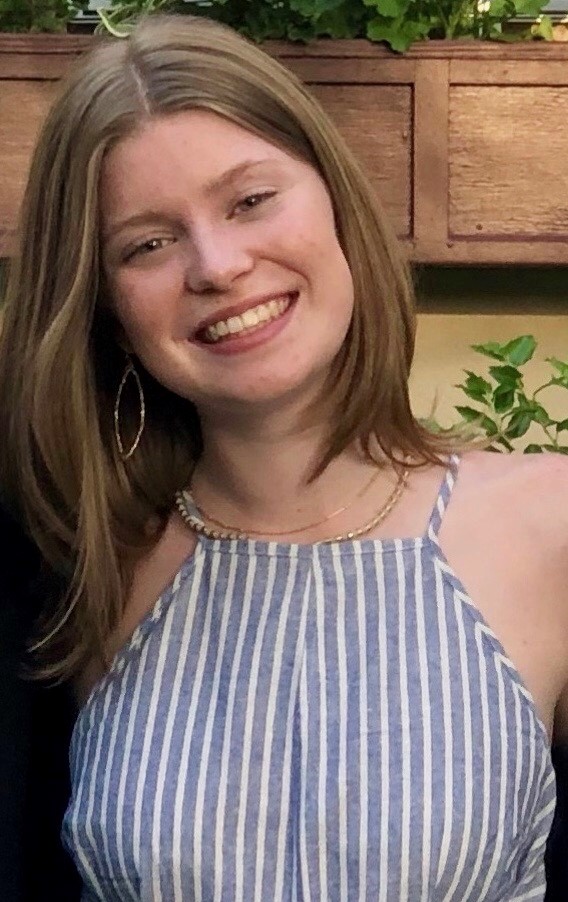
The page you requested could not be found. Try refining your search, or use the navigation above to locate the post.
Editor-in-Chief
Editor-in-Chief
Assistant Editor
Assistant Editor
Senior Assistant Editor
Faculty Advisor
Faculty Advisor
Layout Editor
Assistant Layout Editor
Photo Editor
Photo Editor
Your content goes here. Edit or remove this text inline or in the module Content settings. You can also style every aspect of this content in the module Design settings and even apply custom CSS to this text in the module Advanced settings.
Copy Editor
Copy Editor
Copy Editor
Copy Editor
Copy Editor
By Noah Bergam (V)
Lights. Silence. 390 seconds of glory.
Ever since I first watched in sixth grade, I knew I wanted to do LeBow.
From the win of Katie Coyne ‘16 to the two-year reign of Rachel Chen ‘18 to the triumph of Miro Bergam ‘19, I sat anxiously in the audience year after year. I was the nervous yet critical viewer, who, in his endless deification of the stage, kept imagining how he himself might fare or fail in front of 700 academics. Time flew like an arrow, from imagination to reality. In my sophomore year, I took the stage with a speech about memes. And I won.
The aftermath followed a rapid progression from satisfaction to excitement to terror. I achieved what I had dreamed of for years, and I could still look forward to another chance at the stage in 2020. But I also knew I could very easily fail that second chance and fall short of the high expectations.
In preparing for this year’s competition, I believed that the only way to successfully replay the game would be to break it. So I chose to call out the unsettling pattern of universal agreeability that LeBow speeches were developing, a problematic pattern I myself upheld the year before. In this sense the speech was a critical self-reflection––I chose to burn the magic that I had internalized and glorified over the years, and from those ashes construct an argument against the very anti-argument nature of Pingry culture I embraced.
Did I fail? Certainly in the sense of losing the title.
But in retrospect, I got what I asked for. I did not design my speech to maximize likability among a judging panel––I wrote it in order to spark critical thought and disagreement among the broader student community. And in that sense, I think it was a success.
I met two counterarguments that, in the spirit of debate, I want to address.
To reiterate, my thesis is as follows:
“In order to make sure students develop the key skills of political disagreement, we ought to bring timely, wholehearted, messy debates into the classroom––and then we students ought to embrace more of that argumentative style in our own independent endeavors [eg LeBow itself].”
1. My message is NOT that Pingry students lack the capability to have difficult discussions. I can’t speak for what goes on within specific environments like affinity groups. I simply question how far-reaching, especially between identity boundaries, these discussions are. Thus, I assert that the humanities classroom is the best place to make controversial discussions informed and ubiquitous. Otherwise, Pingry students, like most citizens, will naturally flock to echo chambers, and schoolwide communication, especially in assemblies, will continue to favor numbing agreeability and “political correctness.”
2. Yes, I do think teachers should give their personal opinions in class. Obviously, this comes with a two-pronged expectation of maturity. The student should be able to respect the teacher’s opinion without bowing down to it, and the teacher should be able to be subjective with the explicit intent to inform rather than directly convince.
As I defend this thesis, I don’t pretend my speech was perfect. I made plenty of miscalculations, the most obvious of which was the exclamation that “I’m the Big Fish in a Little Pingry Pond!” Yes, that sounds arrogant. I was trying to be ironic, I was trying to make it clear that the concept of a big fish here is a dangerous illusion that limits one’s ability to think outside the scope of this community’s limited discourse. But I suppose using such a phrase as the cornerstone of the speech might have given some pretty negative impressions. So it goes.
It’s over now. Now I will return to the audience for one last year to watch the brilliance of LeBow from a new lens. But I won’t forget the message I crafted. I’ll continue to defend it and live it out, especially in regards to this newspaper.
The theory of the Big Fish was refuted. But defeated? The point was made on stage and proven offstage. So I accept this loss wholeheartedly.

By Meghan Durkin (V) & Andrew Wong (IV)
On Thursday, March 12, amid concerns over the novel Coronavirus, known as COVID-19, Head of School Matt Levinson announced that Pingry would adopt a remote learning model until at least April 10. On Friday, March 27, heeding Governor Murphy’s updated advisory, this remote learning regime was extended to April 17.
School-sponsored activities, including athletics, were suspended as well, in hopes of keeping the Pingry community safe. This news followed the cancellation of multiple spring break trips, including the French exchange program and the athletic trips to Florida.
Prior to Spring Break, as New Jersey reported its first case of COVID-19, Pingry prepared for likely disruptions as a result of the virus. Mr. Levinson assembled a task force, led by Associate Director of Operations, Safety, and Strategic Initiatives David Fahey, to monitor the situation as it evolved. This model “allows us to act with deliberate speed and care in our decision-making, while also being nimble and adaptive to changing circumstances,” said Mr. Levinson. So far, the biggest challenge for the task force “has been the speed at which [COVID-19] has unfolded.” While COVID-19 spread from China to South Korea to Italy, the virus seemed to be a distant threat. Though, by late March, the United States had over 27,000 confirmed cases.
As Pingry does its part to slow the spread of COVID-19, a new reality of “social distancing” has affected faculty and students. Governor Phil Murphy ordered a statewide lockdown, which encourages people to stay home and shuts down all non-essential business, leaving vacations cancelled, standardized tests postponed, and store shelves empty. Pingry’s remote learning model looks to continue fostering educational growth, while keeping Pingry and the greater community healthy. Teachers, by using virtual classes and online assignments, hope to make remote learning engaging and effective. Mr. Tim Grant, a chemistry teacher, explained the “need to try to create a classroom feel where everyone can feel heard and be involved,” as he believes “a class does involve the transfer of information, but much more importantly it must have the feeling of community.” For many teachers, including Mr. Grant, effectively using remote learning will be a “journey that to me looks like I’ve been air-dropped into the Amazon and I can’t imagine what comes next. The journey will be both scary and exciting with many new discoveries.”
Dean Ananya Chatterji echoed this sentiment in an email to Upper School students, expressing the faculty’s shared hopes for the extended closure. She explained that transitioning to online learning “is NOT going to be perfect. Everyone knows this, and no one — not a single one of us — expects that this will go smoothly. We are hoping to treat it like an adventure: something we can try our best at, knowing there will be pitfalls and successes. Most of all, adventures should be fun. So our hope, as a faculty, is to have fun with it.”
Students will also have to adapt to new circumstances, not only academically, but also extracurricularly. With delayed athletic seasons that face possible cancellations, students look to make the best of the unexpected situation. Mr. Grant, who coaches girls’ varsity track, explained his realization “that [he] must give enough information so that each athlete can learn how to coach themselves.” Both students and coaches must find “some gems against the rubble,” as they stay in-shape and prepare for a potential season at home. Along with sports, clubs face new challenges, as they hope to keep members connected online.
Furthermore, this new territory of remote learning changes many students experience socially. Sanjana Biswas (V) said, “I’ll miss my friends the most and just the experience of being in school. As much as we complain about it, we all have fun talking to our friends during lunch and flexes and going to class.” Though, she added, “It’s pretty easy to stay in touch through FaceTime and text.”
While the COVID-19 pandemic continues to unfold, the Pingry community looks to be cautious, as the possibility of extended closure looms. Students and faculty alike promise to remain open and positive throughout these uncertain times. Gia Kalro (V) believes that while “we’ll have a lot of trial and error, eventually it will all work out.”
As of March 22, global Coronavirus cases have surpassed 300,000. In just a few weeks, everyday life in the United States and abroad has been replaced by social distancing and self-quarantining, while each day the number of cases grows. Though, during this time of uncertainty, both the Pingry and global community has stressed the importance of staying calm and maintaining hope. Mr. Levinson encourages students “to have fun, try new things, be creative, and take the time to get outside for some fresh air,” while finding “ways to build community remotely, whether it’s around a shared interest like a club, or around a passion project.” He asks the community to “be patient as we all discover new ways of learning and being in community together.”
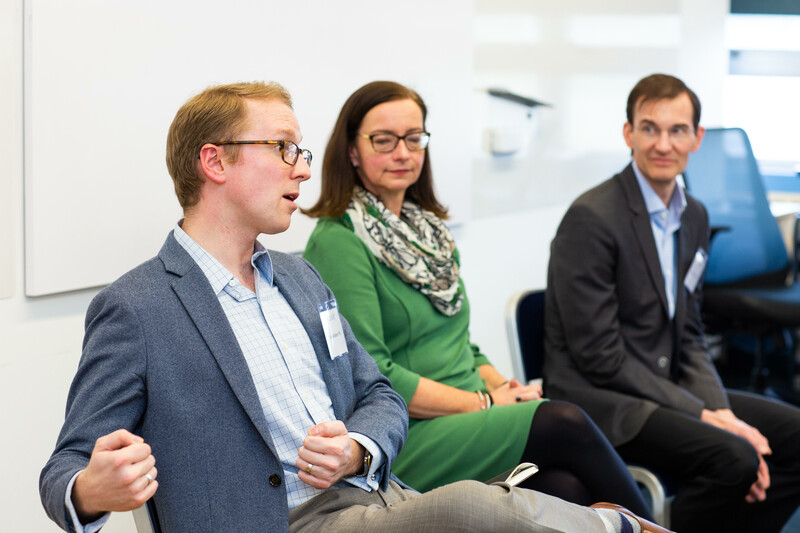
By Vicky Gu (VI), Meghan Durkin (V), and Eva Schiller (V)
On Friday, January 31, Form V and VI students attended Pingry’s annual Career Day, in which they were able to interact with a wide variety of Pingry alumni and gain insight into future career options.
The event began with a keynote presentation by Dr. Jennifer Weiss ‘89, who spoke to students about her unique position as one of the few women who specializes in orthopedic surgery. After the keynote, students dispersed and were able to attend three career panels––two chosen before the event, and one that the student could decide that morning. Each panel was led by two or three Pingry alumni involved in a specific career––among the careers featured were law, media and communications, and medicine. Students had the opportunity to ask the alumni questions about their education, career paths, and projects, as well as general life questions.
At the end of the school day, after speaking about her profession, talking to students, and participating in numerous panels, Dr. Weiss was interviewed by the Pingry Record Staff. The following are excerpts from our conversation.
How did Pingry prepare you for the world of orthopedic surgery and sports medicine?
I found Pingry to be more rigorous than college and medical school. My teachers [Mr. Lavalette, Mr. Grant] took an interest in where I thought my limits were, and pushed me past my limits. It is a place where I went from being a shy rule-follower to being proud.
How did you become interested in orthopedic surgery/sports medicine?
My dad was an orthopedic surgeon. Then, I had a funny route: as I got older, my dad was really excited about me being an orthopedic surgeon, so I got really unexcited about being an orthopedic surgeon. But, when I did my orthopedic rotation, I fell in love with it.
What attracted you to a male-dominated specialty?
I was very comfortable with a group of my friends who were boys from a very early age. I believe that I grew up in a bantering environment, so when I came into the world of orthopedics, not as my father’s daughter, but as a medical student, I was comfortable with the way people spoke to each other. I fell in love with it socially.
What do you think was the most challenging part in your entire career path?
It was my second year of being a resident. The newness had worn off. It’s like when you’re going on a long run, the middle miles are the most tiring. The second year, I thought, is this ever going to be over? The fatigue set in mentally and physically.
What is the biggest challenge you face on a day-to-day basis?
I struggle with maintaining perspective of how privileged I am to have a healthy family, to have a job that I love, and that I can send my kids to a good school. I still get lost in the weeds because I want everything to be better and more perfect.
How have you balanced your family life with your professional life? What was it like when you first had children?
I like the phrase work-life integration. I brought my kids with me today, and I will try to bring one of my three kids to each meeting with me. My son mountain bikes with me. Lila will do her homework, and I’ll be in the room on my computer next to her.
What would you like to tell the greater Pingry community?
I want the people in this community to know how the Pingry family and the alumni network is extensive. People are open with their time and hearts through this connection. It’s gonna be there for you.
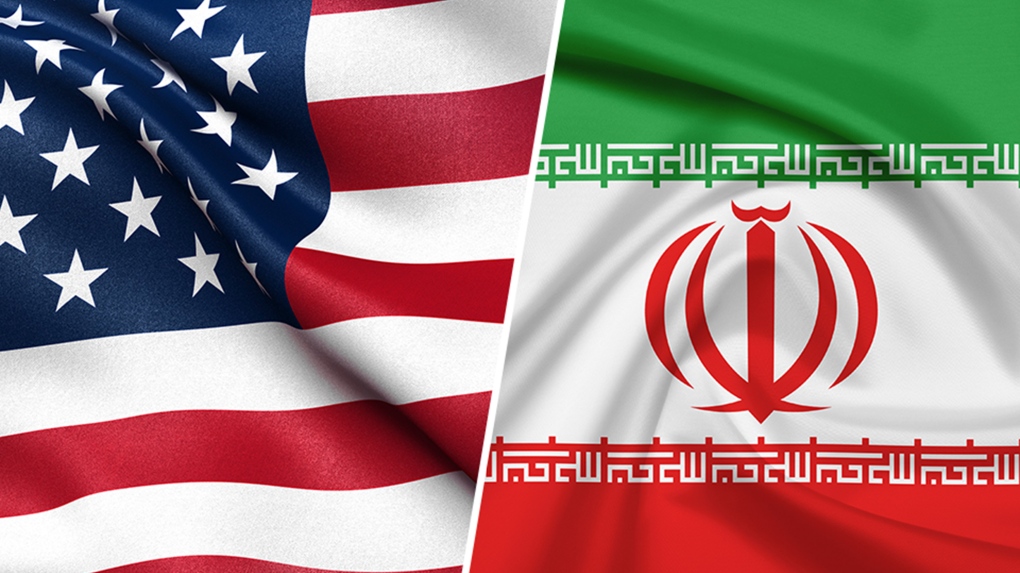
By Meghan Durkin (V)
It’s February 1979. The phone rings. The clock reads 3 a.m. as my grandfather holds it up to his ear. It’s 11:30 a.m. in Iran, where the Shah, Mohammad Raza Pahlavi, had fled in response to insurgency a month earlier. At the time, my grandfather was working for American Bell International, an AT&T subsidiary tasked with facilitating the improvement of telephone and communication systems in Iran. However, with the overthrow of Pahlavi and the rise of Ayatollah Khomeini, AT&T’s project ceased. Over the next few weeks, my grandfather, who handled insurance for the company, worked to repossess valuables left by AT&T employees, who were forced to leave their apartments in Iran following the fall of the Shah. After finding where workers had left clothing, jewelry, pets, and more, my grandfather transferred that information to employees still in Iran, in hopes of reclaiming their belongings.
Prior to the winter of 1979, during the height of AT&T’s project in Iran, U.S. relations with the country were bolstered. The pro-Western policies of Pahlavi fit American economic interests, specifically in regards to the oil industry. However, to many Iranians, the Shah’s policies felt repressive and tyrannical. The “White Revolution,” a number of reforms established by Pahlavi in the early 1960s, implemented land redistribution, and the expansion of women’s rights. These policies were quickly met with popular dissent, as the poor found little relief. By the end of the Shah’s reign, the U.S. appeared to support a leader unpopular with his own people. Once Pahlavi fled, his favorable relations with the U.S. seemed to continue, much to the resentment of Iranians. U.S. President Jimmy Carter went so far as to allow Pahlavi into the U.S. to receive cancer treatment.
In November of 1979, in retaliation for Carter’s action, Iranian students took 66 Americans hostage at the U.S Embassy in the Iranian capital of Tehran. The crisis, which lasted 344 days but ultimately ended in the safe return of the hostages, began a long history of strained relations between the U.S. and Iran.
These historic tensions were in the spotlight this January, when President Trump ordered an airstrike that killed Iranian general Qasem Soleimani. After the strike, Trump threatened to carry out further attacks. On Twitter, he referred back to the 1979 crisis, noting that the 52 Iranian sites that had been identified as targets represented “the 52 American hostages taken by Iran many years ago.” Many Iranians, who considered Soleimani a hero, were quick to declare revenge and violence against the U.S. However, President Trump and his administration have continued to justify the act as a preemptive attack against a supposed plan of Soleimani to strike a U.S. embassy.
Over 40 years after the overthrow of the Shah and the consequent American hostage crisis, U.S.-Iran relations seem rockier than ever. Under President Obama in 2013, the countries attempted reconciliation through the Iran Nuclear Deal, which outlined that Iran would restrict their nuclear activities. In 2018, however, President Trump abandoned the plan, and the two countries have faced growing tension and subsequent violence over the past few years. Now, after Soleimani’s death, there seems to be no end in sight.
Thus, the question remains: is compromise between the U.S. and Iran possible? Is an amicable relationship on the horizon, or will we continue towards aggression and animosity? To me, the two countries have grown too divisive to ever find a real compromise, and the U.S. does not have a compelling reason to concede to the Iranian government. When President George W. Bush coined Iran one-third of the “axis of evil,” it was clear the United States viewed the country’s regime as radical and dangerous; the government has been accused of supporting terrorism and seeking to bolster weapons of mass destruction. Thus, our government doesn’t owe the Iranian government diplomacy, but it does have a responsibility to support the Iranian people. As a result of economic sanctions placed on Iran in 2018, its people have faced an economic recession, rising prices, and stagnant economic growth. As innocent people suffer, the U.S. government seeks to break a regime, without thinking of the consequences for the average citizen. So, while I believe I will never see a time like my grandfather’s, where the United States and Iran came together for economic gain, I do believe it’s possible for our government to protect itself against Iranian threats while still treating the Iranian people humanely.
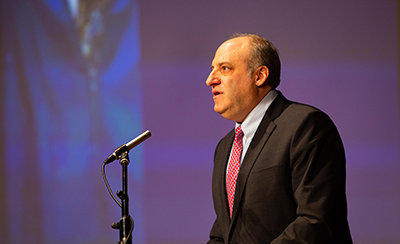
By Rhea Kapur (V)
On Friday, November 8, at the annual John Hanly Lecture on Ethics and Morality, Mr. Andrew Goldstein ‘92 discussed the influence of the Honor Code in his career at Pingry and beyond, and shared some ethical dilemmas he faced where the Honor Code’s principles guided him.
Established in 1999, the John Hanly Lecture Series on Ethics and Morality honors former Headmaster John Hanly’s personal commitment to instilling honorable and ethical values in students at Pingry. A diverse set of speakers have visited campus each year since the series’ inception, each of them having a unique viewpoint on ethics and moral dilemmas in the 21st century. Mr. Goldstein is no exception. After graduating from Princeton University in 1996, Mr. Goldstein returned to Pingry to teach AP Government and World Cultures, filling the role of his former teacher Mr. Joe LaValley (whom Mr. Goldstein greatly admired). Later, Mr. Goldstein joined TIME Magazine as an investigative reporter. After graduating from Yale Law School, he eventually served as Chief of the Public Corruption Unit at the U.S. Attorney’s Office for the Southern District of New York. Recently, he was Senior Assistant Special Counsel in the Department of Justice’s Russia investigation, led by Robert S. Mueller III.
In his remarks, Mr. Goldstein shared two stories, one of which centered around his experience as an investigative reporter at TIME. While covering the Columbine High School shooting, Mr. Goldstein discovered that members of the school’s community were distraught from TIME’s recent cover photo, in which the main focus was on the shooters, not the students who were killed. They wanted reassurance that this would not happen again. Mr. Goldstein retained a neutral position, noting his lack of control over the matter, but also stated how he could not believe they would repeat such a thing.
When another cover story that focused solely on new video footage of the killers ran, Mr. Goldstein had to come to terms with the betrayal the members of the community would feel and the role he played in that betrayal. To alleviate some of the pain, Mr. Goldstein personally reached out to each person he talked to, warning them ahead of time of the cover story. He also contemplated whether he “could have pushed harder [than he did] to keep that photo off the cover,” acknowledging his personal responsibility. Mr. Goldstein’s main takeaway from this was to figure out one’s motivations – the principles upon which one bases their decisions. Getting those right, he noted, is the first step towards acting with integrity. This was a key theme of his overall talk. In his conclusion, he reminded students and faculty to “step back and look at our public discourse today… the importance of telling the truth has dropped off the list of what people think matters. As Pingry students, that should not be acceptable to you.” He encouraged the community to always “remember the values [that] were taught here” to guide their decisions in life.
The talk was well received throughout the community. Meghan Durkin (V), Secretary of the Honor Board, said that “his take on the Honor Code was very insightful, especially his remark that while it may allow for more violations, it provides students with the chance to make realistic, tough decisions.” Samantha Burak (VI) also noted how “we hear about honorable behavior in our daily lives, but this was an important reminder that the lessons of the Honor Code apply well beyond just high school. The stories that Mr. Goldstein shared with us revealed that real situations in life are not always black or white, but that we should be striving to act with personal integrity regardless.”
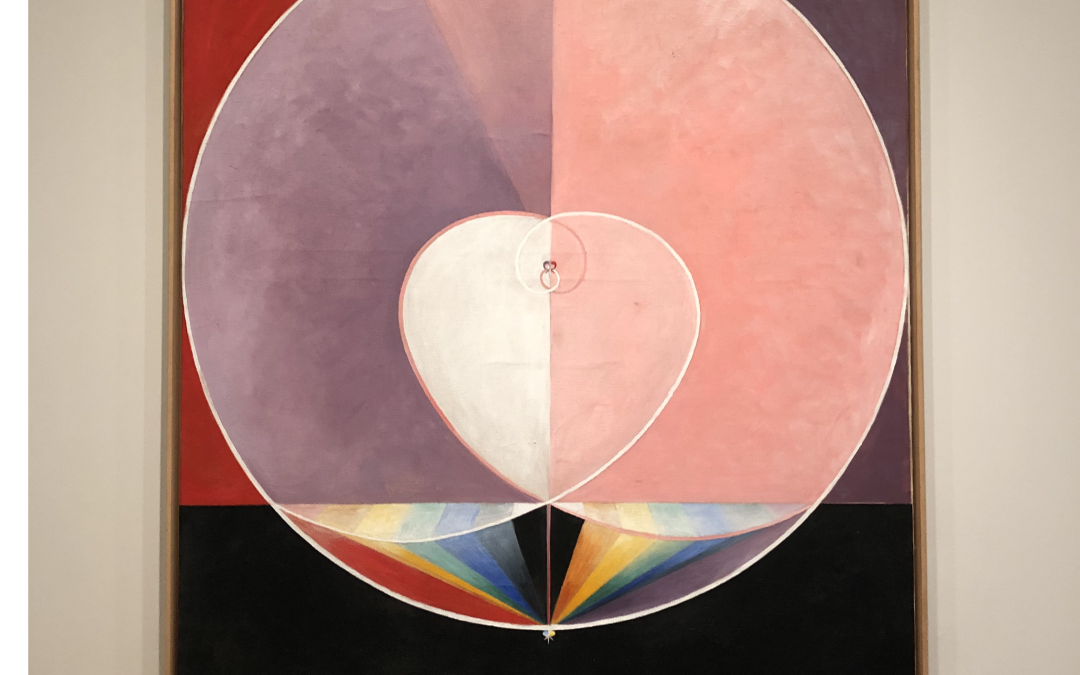
By Mirika Jambudi (III)
On Thursday, November 14th, ninth-graders in Art Fundamentals and various other classes visited the Museum of Modern Art for their annual art trip into New York City. They visited many of the museum’s new exhibitions, including, but not limited to, “Transfigurations,” “Inner and Outerspace,” and “Hardware and Software.” The trip featured many different types of galleries, including ones specializing in photography, digital media, and 3D artwork; each elicited many different reactions from the students. Victoria Ramos (III) said that she “was surprised to see how much art had changed throughout the centuries as [she] walked from gallery to gallery.”
One of the collections that many students seemed to enjoy was Gretchen Bender’s “Dumping Core” exhibit. It featured 13 video monitors in a dark room set to techno music that displayed many intercut logos, graphics, and clips from TV and movies. These images were all pieced together to create an eye-catching visual display. After further research, students later found that the meaning behind this exhibit was to subvert corporate agendas and combat the use of technology for commercial gain.
Another collection was entirely dedicated to the Tiananmen Square student protests in the 1980s. The artists featured in this collection used very abstract methods and techniques to convey their anger at the government, such as lathering a chicken with soap, firing a gun at their artwork, or photographing protestors lighting fireworks in Tiananmen Square. These artworks challenged the overwhelming censorship of the Chinese government and were seen as forms of protest and rebellion. They were also viewed as individualist responses towards reforming socio-economic shifts and urbanization at the time. “It was exciting to learn and research the backstories behind these works of art, because it is more complex than what you see on the surface,” says Caleb Park (III). Zala Bhan (III) also agreed that the trip was a success and a great learning experience because she was “exposed to many different forms of artwork …which really broadened my perspective on what one can define as art.”
After coming back from the art trip, the students were asked to curate their own “gallery” of ten paintings that they found interesting and had a common principle or element of art. They were also asked to analyze different techniques that the artists used in their artwork, such as emphasis through color or movement through shapes, lines, and value. Students had fun selecting and organizing these works of art in their own mini-gallery project; overall, the trip was a fantastic experience.